Blood Clotting Mechanism Chart Blood Coagulation Pathway The process of blood coagulation leads to haemostasis i e prevention of bleeding or haemorrhage Blood clotting involves activation and aggregation of platelets at the exposed endothelial cells followed by
An unwanted clot in a blood vessel that cuts off the blood supply to a vital organ is one of the body s worst enemies Most of the body s anticoagulant substances circulate within the blood and the blood vessels themselves help prevent clotting Blood clotting technically blood coagulation is the process by which liquid blood is transformed into a solid state This blood clotting is a complex process involving many clotting factors incl calcium ions enzymes platelets damaged tissues activating each other
Blood Clotting Mechanism Chart
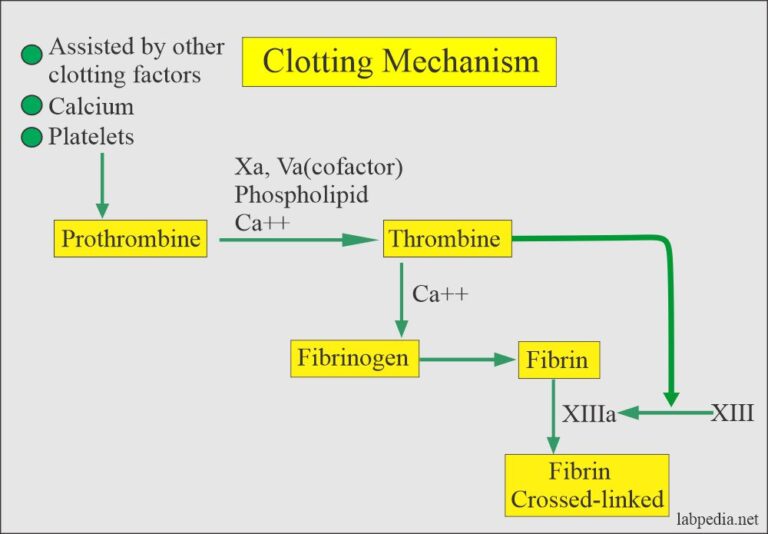
Blood Clotting Mechanism Chart
https://labpedia.net/wp-content/uploads/2020/01/clotting-mechanism-2-1-768x534.jpg
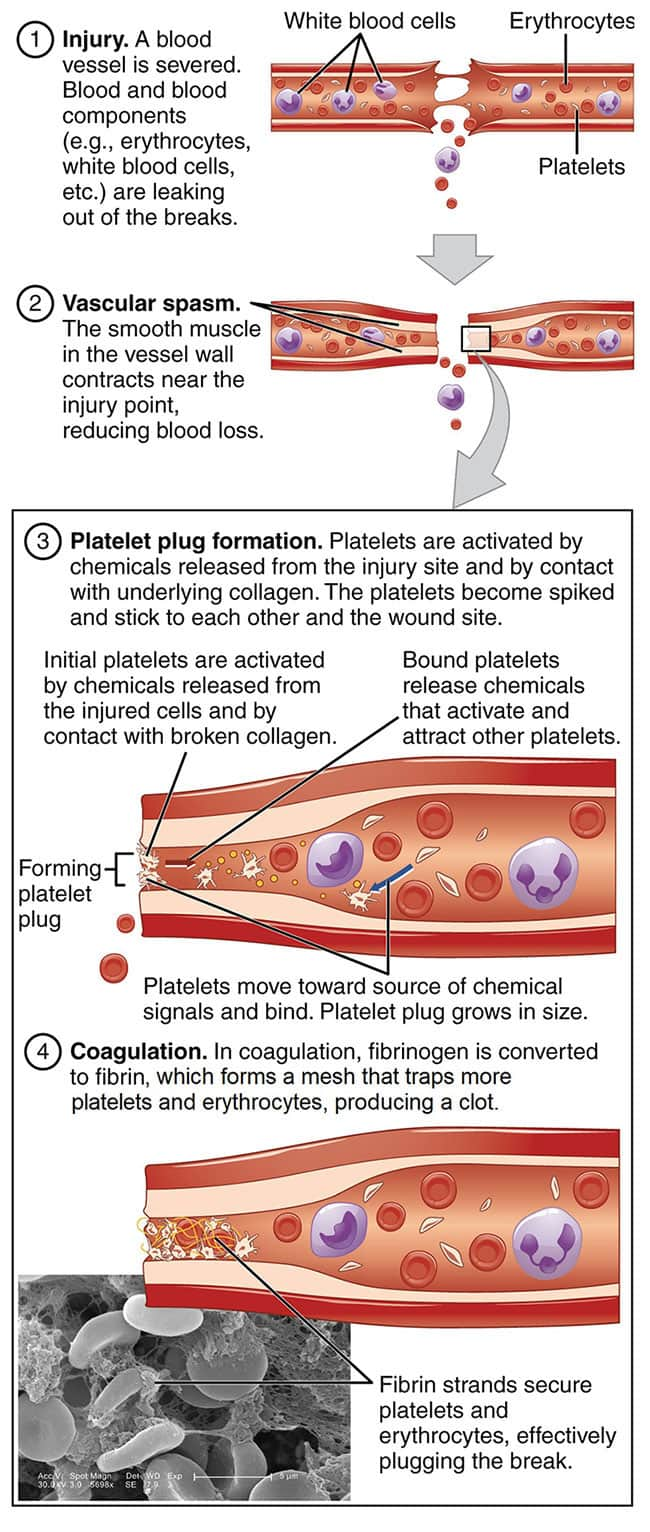
Mechanism Of Blood Clotting
https://www.lifeextension.com/-/media/lef/Images/protocols/images/Blood_clotting_fig1.jpg

Mechanism Of Blood Clotting
https://diagramweb.net/img/blood-clotting-cascade-diagram.jpg
The coagulation process is characterised by a cascade of events which lead to the formation of a blood clot Proteins called clotting factors initiate reactions which activate more clotting factors This process occurs via two pathways which unite downstream to form the common pathway These are Eective control of bleeding occurs through a complex process called hemo stasis which will be explained in four basic steps e basic s teps of the blood clotting process are vasoconstriction platelet activation thrombus formation and dissolution of the clot Basic laboratory tests used to identify blood clotting problems will also be presented
Write a flow chart showing major events taking place in the clotting of blood Coagulation or blood clotting is a physiological process in our bodies It prevents excessive bleeding Platelets and clotting factors work together to seal the site of the injury Blood clotting is the process by which blood coagulates to form a thickened mass of blood tissue Blood is made of several components suspended in a fluid medium called plasma These components include red blood cells white blood cells and platelets
More picture related to Blood Clotting Mechanism Chart
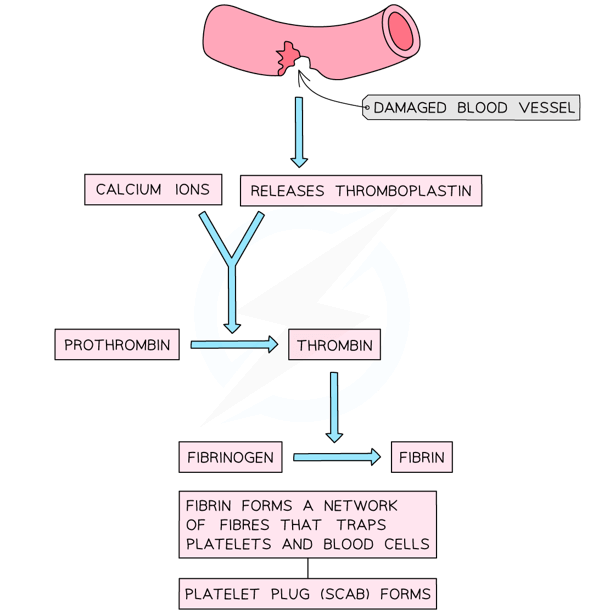
Mechanism Of Blood Clotting
https://rajusbiology.com/wp-content/uploads/2023/03/Blood-Clotting-Mechanisms-and-Stages.png
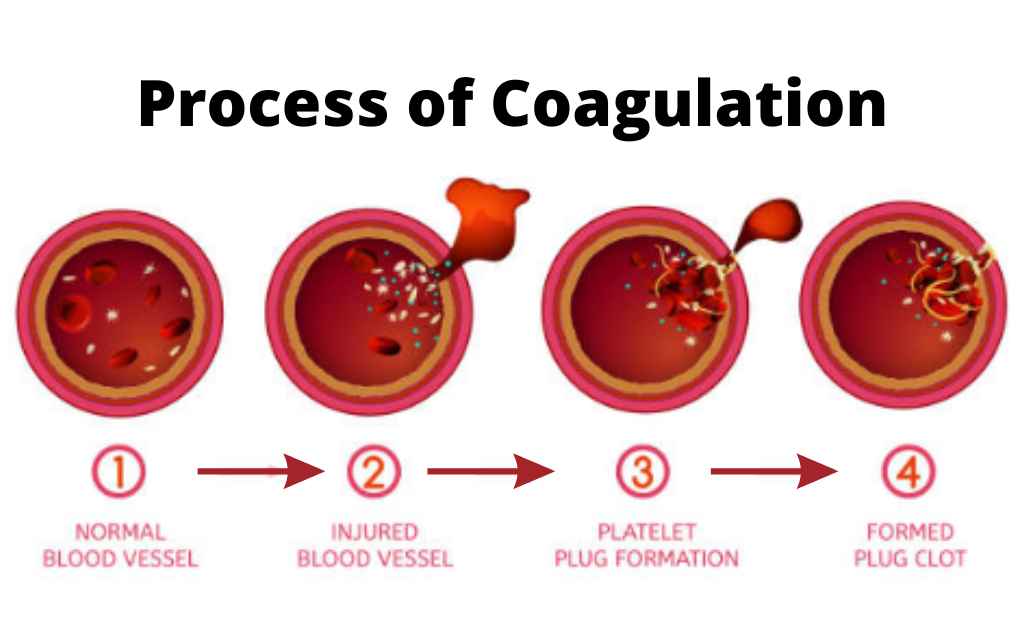
Mechanism Of Blood Clotting Blood Coagulation Class Biology The Best Porn Website
https://eduinput.com/wp-content/uploads/2022/08/Process-of-Coagulation_11zon.jpg
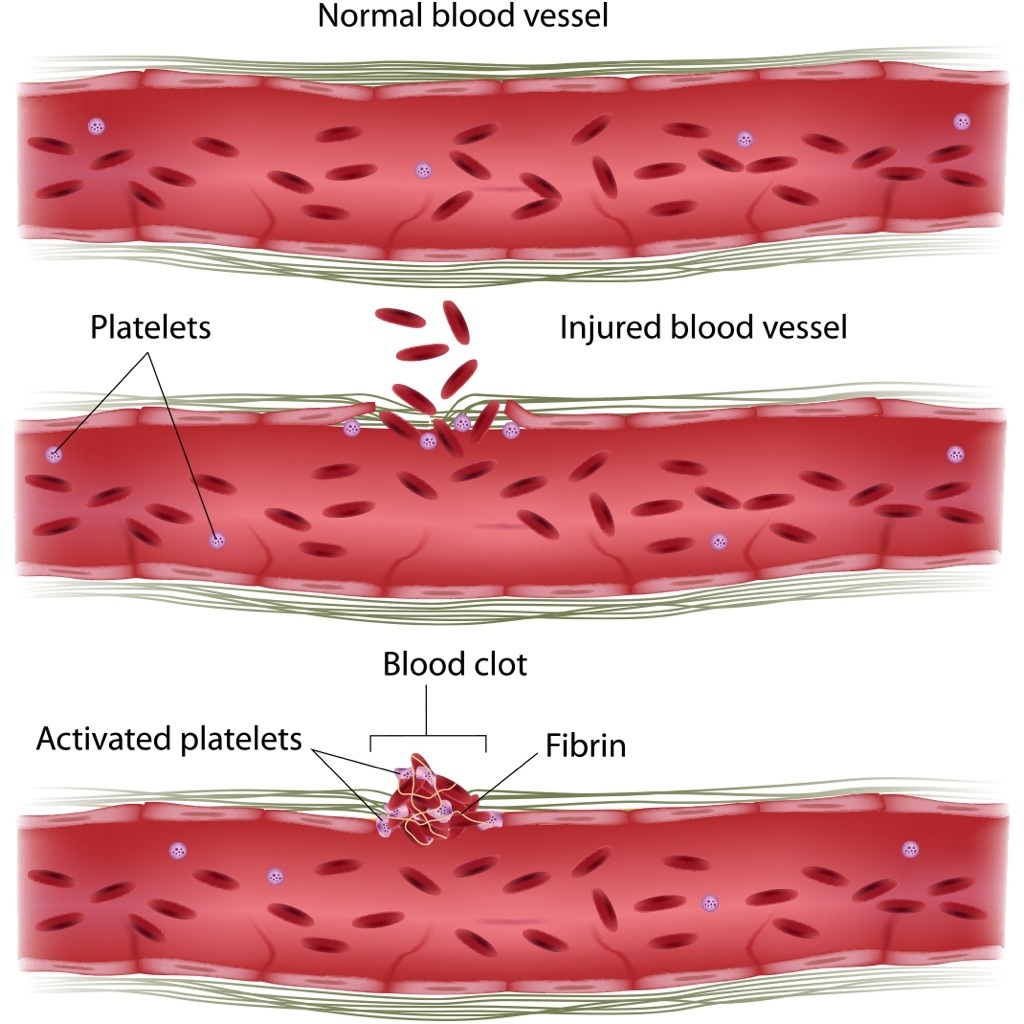
Blood Clotting Anatomy Ch 10 Blood
http://anatomych10.weebly.com/uploads/2/6/5/3/26538918/426905235.jpg
The mechanism of hemostasis can divide into four stages 1 Constriction of the blood vessel 2 Formation of a temporary platelet plug 3 Activation of the coagulation cascade 4 Formation of fibrin plug or the final clot Pink border represents intrinsic pathway green border represents extrinsic pathway and orange border represents final common pathway of blood coagulation Proteins involved in the main pathway are colored in blue whereas regulatory proteins are
Blood Clotting Mechanisms and Stages In this article we will discuss about the blood clotting and their Mechanism When an injury or trauma is caused the wound does not continue to bleed for a long time The blood stops flowing after sometime due to blood coagulation or blood clotting Coagulation also known as clotting is the process by which blood changes from a liquid to a gel forming a blood clot It results in hemostasis the cessation of blood loss from a damaged vessel followed by repair

Blood Clotting Mechanisms And Stages Free Biology Notes Rajus Biology
https://rajusbiology.com/wp-content/uploads/2023/03/Blood-Clotting-Mechanisms-and-Stages.jpg

Blood Clotting Cascade Diagram Quizlet
https://o.quizlet.com/ndMDqrK6wxNTZXZ-Ke3nsQ_b.png
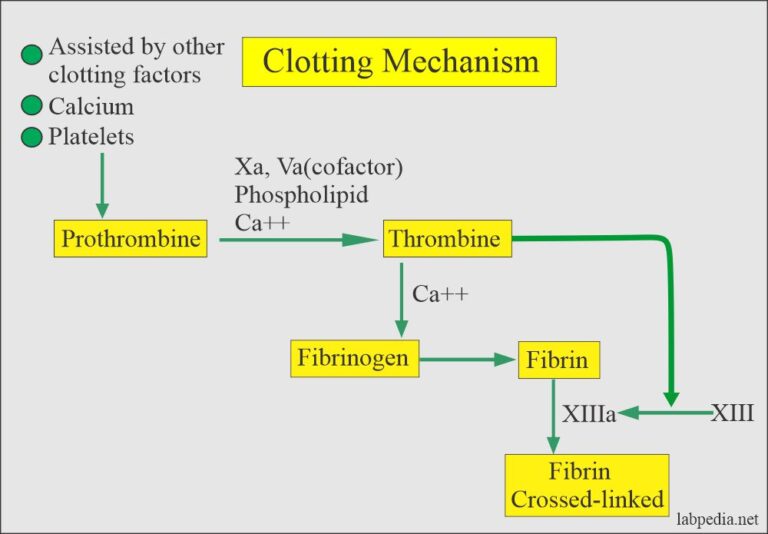
https://byjus.com › neet › mechanism-of-blood-coagulation-notes
Blood Coagulation Pathway The process of blood coagulation leads to haemostasis i e prevention of bleeding or haemorrhage Blood clotting involves activation and aggregation of platelets at the exposed endothelial cells followed by
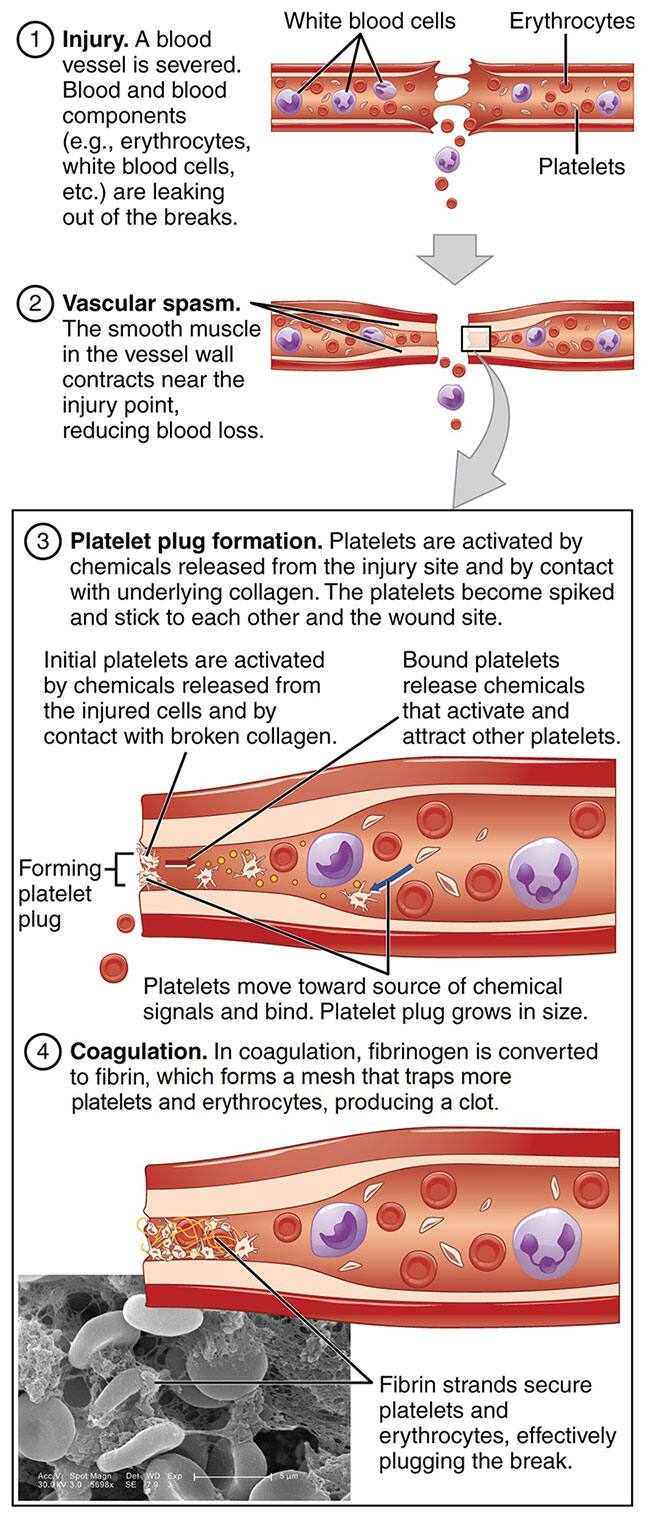
https://www.onlinebiologynotes.com › blood-clotting-factors-mechanis…
An unwanted clot in a blood vessel that cuts off the blood supply to a vital organ is one of the body s worst enemies Most of the body s anticoagulant substances circulate within the blood and the blood vessels themselves help prevent clotting
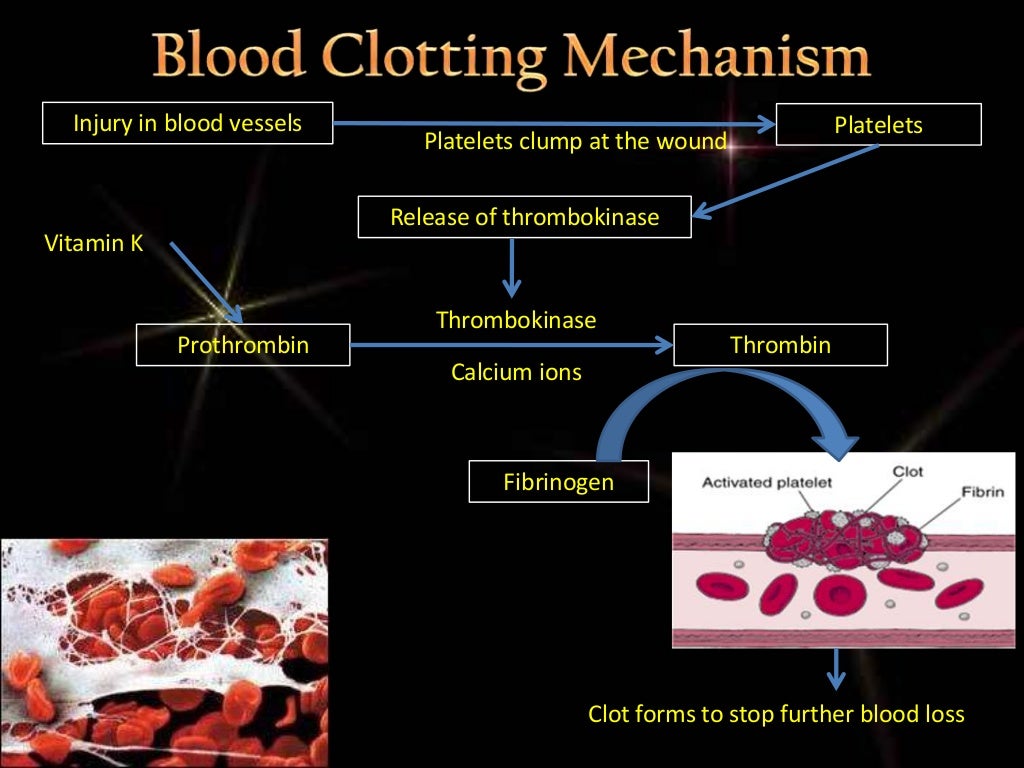
F5 1 3 Mechanism Of Blood Clotting

Blood Clotting Mechanisms And Stages Free Biology Notes Rajus Biology

Blood Clotting Pathway
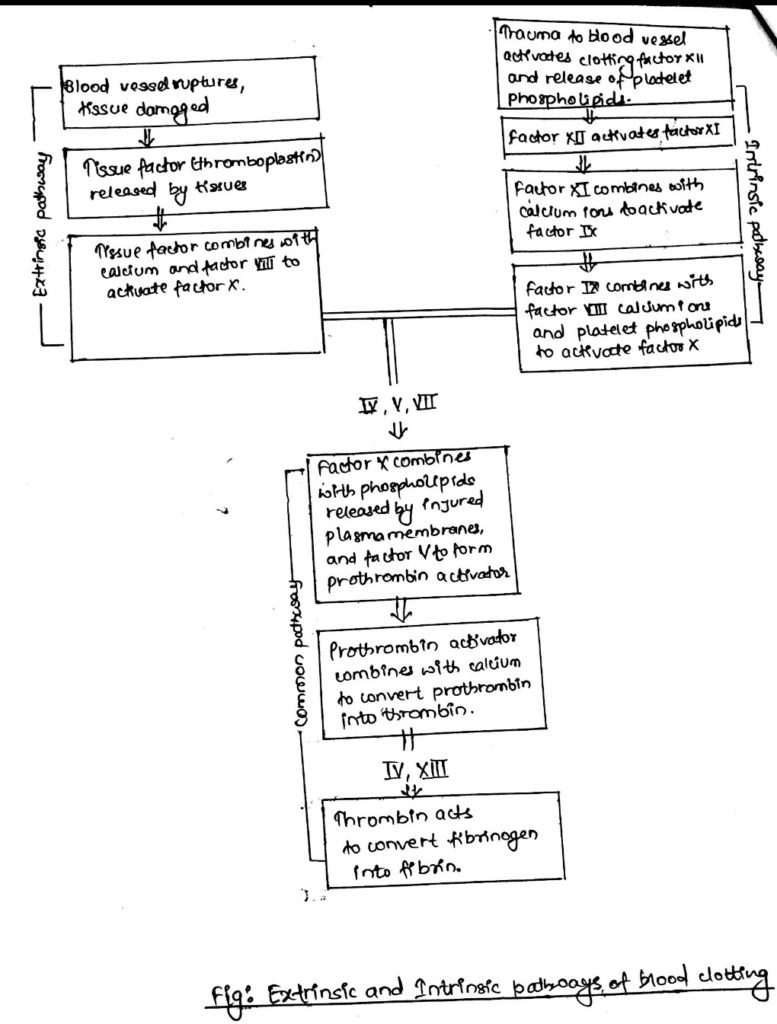
Blood Clotting Factors Mechanism And Inhibitors Online Biology Notes
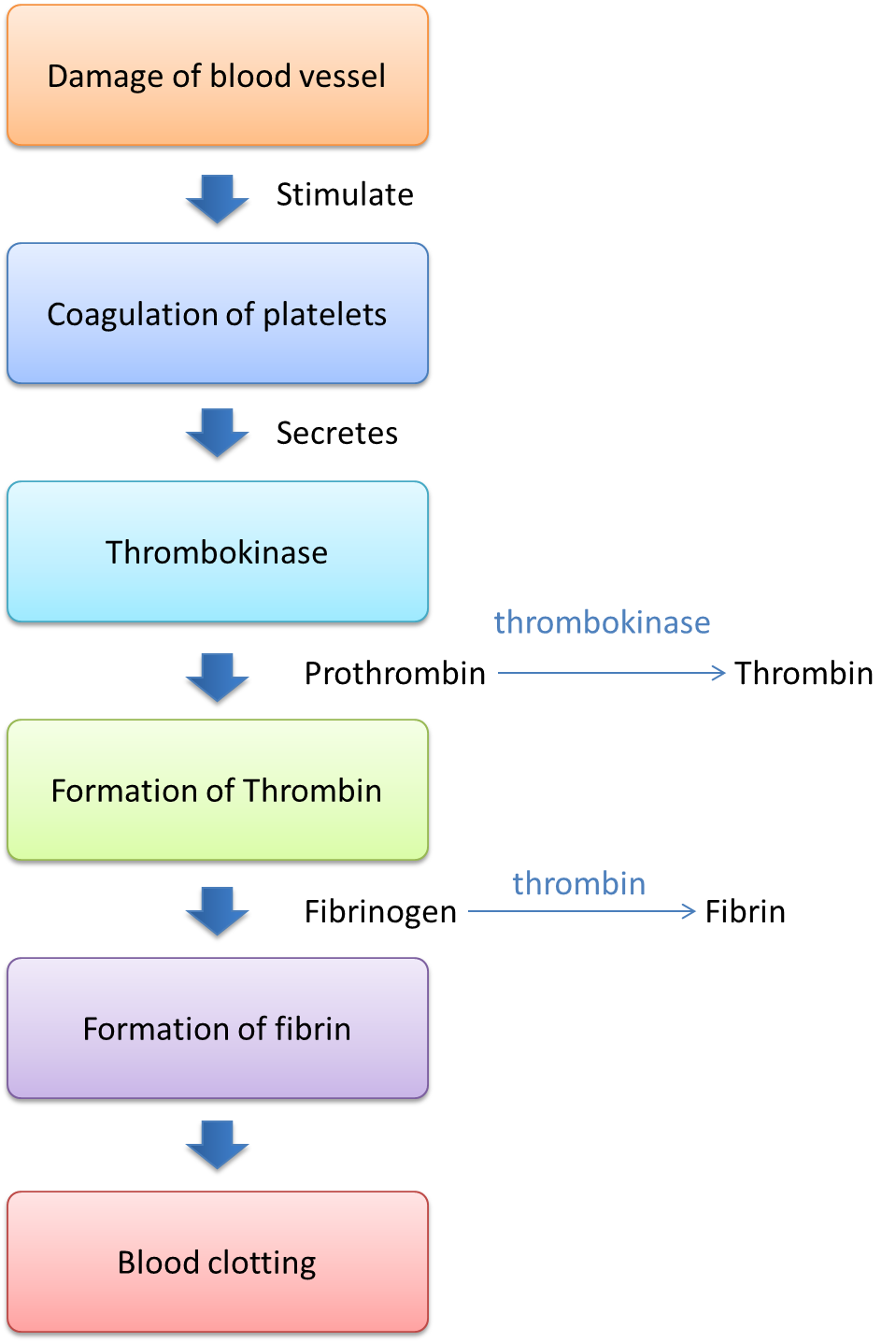
1 3 1 Mechanism Of Blood Clotting SPM Biology
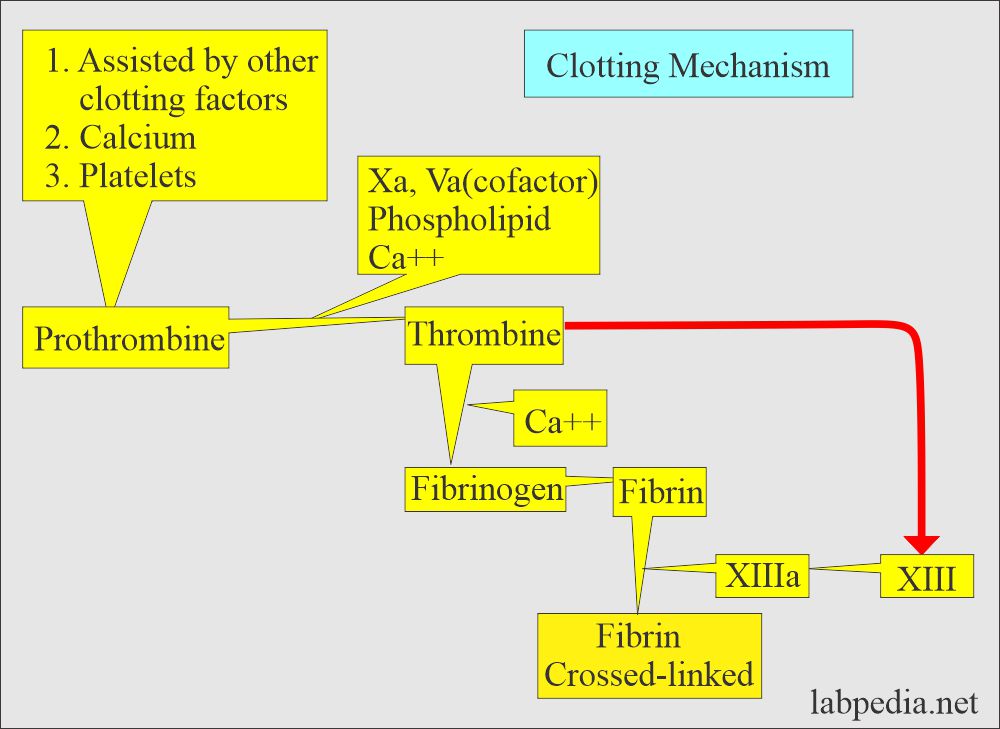
Blood Clotting Factors Table Brokeasshome

Blood Clotting Factors Table Brokeasshome
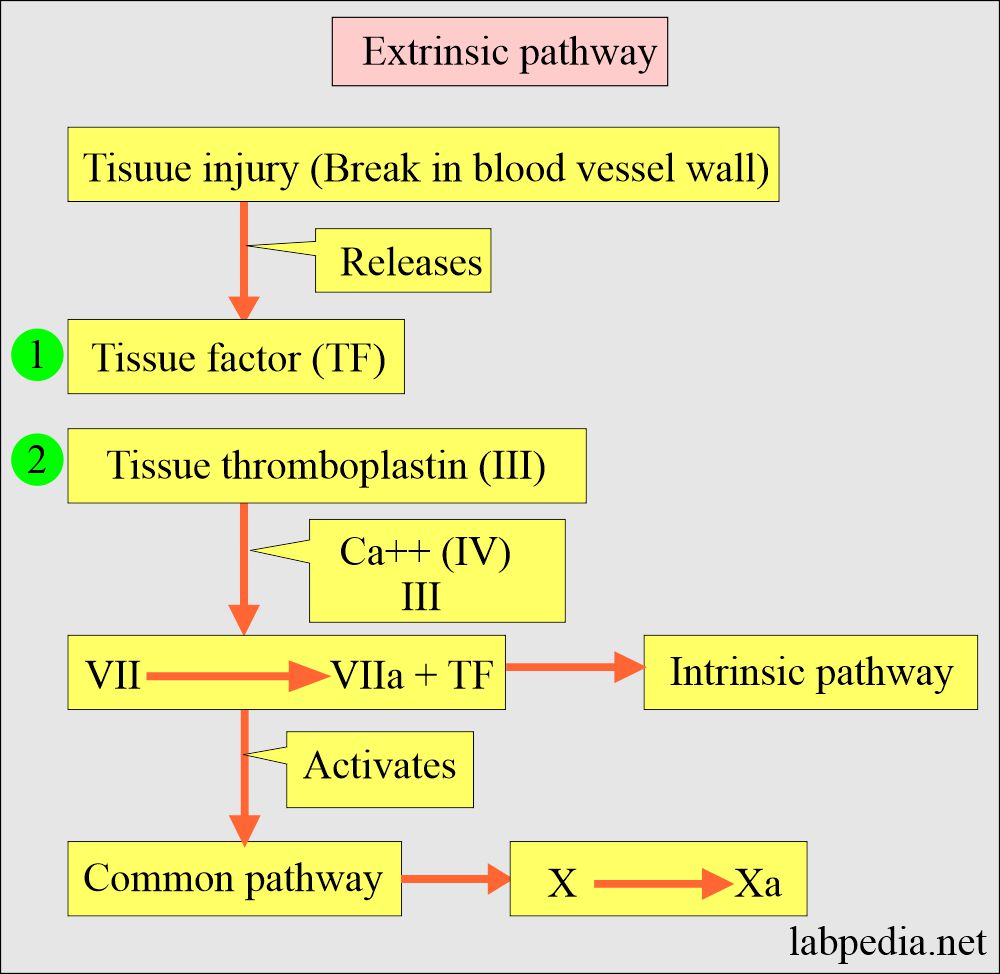
Blood Clotting Cascade
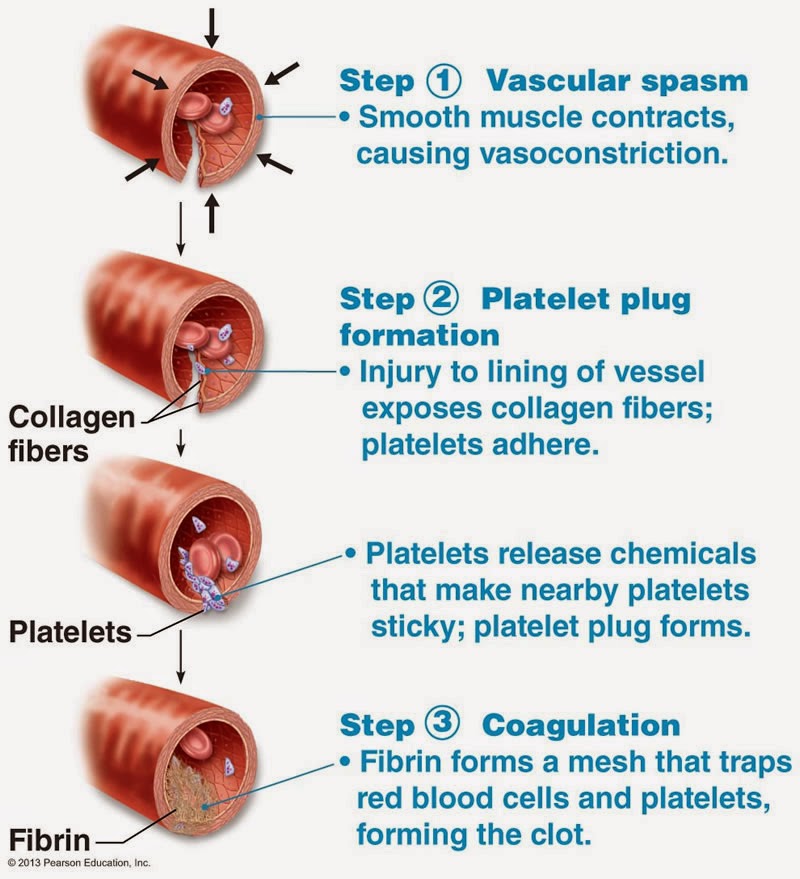
Bio Geo Nerd Blood Clotting
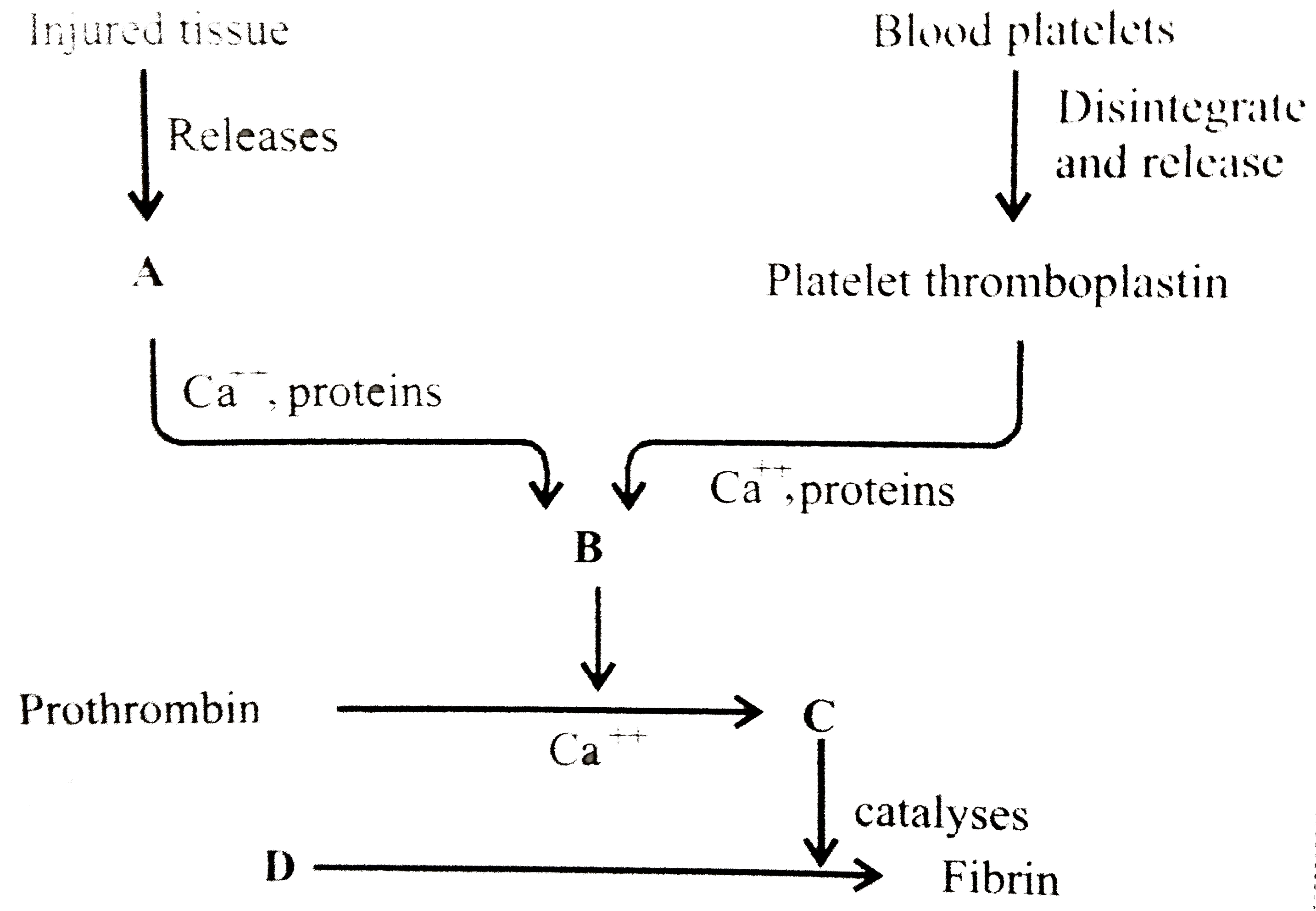
Flow Chart Blood Clotting Process Diagram
Blood Clotting Mechanism Chart - Write a flow chart showing major events taking place in the clotting of blood Coagulation or blood clotting is a physiological process in our bodies It prevents excessive bleeding Platelets and clotting factors work together to seal the site of the injury